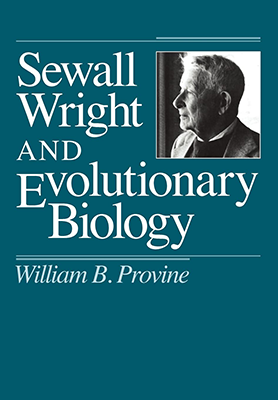Sewall Wright and Evolutionary Biology
“Sewall Wright and Evolutionary Biology” by William B. Provine is a seminal work that explores the life, contributions, and influence of Sewall Wright, one of the key figures in evolutionary biology. Here’s a summary:
Biography of Sewall Wright: Provine provides a comprehensive biography of Sewall Wright, detailing his early life, education, and career trajectory. Wright’s upbringing in a rural environment influenced his interest in biology, and he went on to study at Harvard University and the University of Chicago.
Wright’s Contributions to Evolutionary Theory: Provine discusses Wright’s significant contributions to evolutionary theory, particularly his development of the shifting balance theory of evolution. Wright proposed that genetic drift, gene flow, and natural selection interacted in complex ways to shape the evolutionary trajectory of populations over time.
Population Genetics: Wright’s work in population genetics revolutionized the field, providing mathematical frameworks for understanding the distribution of genetic variation within and between populations. He introduced concepts such as the “F-statistics” (Fst, Fis, and Fit) to quantify genetic differentiation and gene flow.
Evolutionary Process: Provine explores Wright’s ideas about the process of evolution, including the role of genetic drift in small populations, the importance of gene interactions (epistasis), and the concept of adaptive landscapes. Wright’s work laid the groundwork for modern evolutionary theory and influenced subsequent research in the field.
Evolutionary Synthesis: Wright played a key role in the modern synthesis of evolutionary biology, which integrated Darwinian natural selection with Mendelian genetics and population genetics. Provine discusses Wright’s collaborations with other prominent biologists, such as Ronald Fisher and J.B.S. Haldane, in shaping the foundations of evolutionary theory.
Legacy and Influence: Provine examines Wright’s lasting legacy and influence on the field of evolutionary biology. Despite some controversies and disagreements with other scientists, Wright’s ideas continue to be highly influential, particularly in the fields of population genetics, evolutionary ecology, and conservation biology.
Criticisms and Debates: Provine addresses criticisms of Wright’s work, including debates over the relative importance of natural selection versus genetic drift in evolutionary processes. He also discusses controversies surrounding Wright’s views on topics such as group selection and sociobiology.
In summary, “Sewall Wright and Evolutionary Biology” provides a comprehensive overview of Wright’s life, work, and enduring contributions to the field of evolutionary biology. It highlights his pioneering research in population genetics and evolutionary theory, as well as his impact on the development of modern evolutionary biology.

